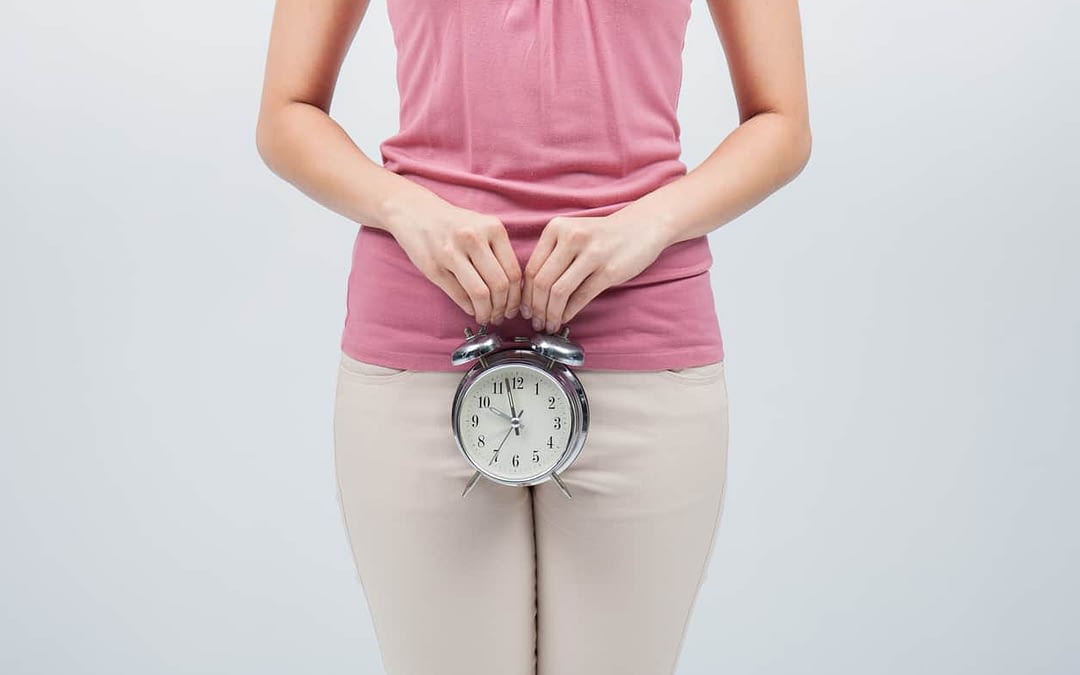The menstrual cycle is a beautifully timed sequence of events with different hormones being released every few days. This flux of hormones is very important as it supports egg development, ovulation and matures the uterine lining for a good quality period.
Hormone dysfunction in the second half of the cycle can be the root cause of PMS-related mood symptoms, physical symptoms and the likelihood of conceiving any given month. We can gather a lot about a woman’s hormones from a thorough clinical history and simple, inexpensive lab tests.
But not many women experience their cycle in this way. Many have painful periods (read about my favourite herb for that here), major mood swings and can have spotting for days or weeks before their actual period arrives.
The second half of your cycle (after ovulation) is called the luteal phase, and when women don’t ovulate, have excessive stress, or high levels of inflammation this ‘second half’ isn’t orchestrated the way it should be, leaving the uterus a bit confused!
A mature endometrium produces a good quality period, but when hormone levels are low from lack of ovulation, or the stress response (which suppresses fertility to preserve the “self” before creating another human) the endometrium doesn’t mature, and leaks out for days or weeks before it’s supposed to, leading to shortened cycles or mid-cycle spotting (if you’re less than 25 days each month I’m talking to you) (1–5) .
When we do lab work on these women we usually find high or low estrogen, low progesterone and high levels of cortisol (the stress hormone). Using hormone levels we can determine what’s going on, and how to treat you. The hormone levels are a signal that the right sequence of events isn’t happening either at all, or in the right order.
Treatments should be targeted at the root, while helping extend the length of your cycle and encourage endometrial maturity. Vitamin C (4,6), melatonin (7) and other medications (8) have all been studied as support measures for women with luteal phase defect. Progesterone replacement may help symptomatic women, and has been well proven as a support for fertility in these women (9,10).
Often by the time we see women with shortened cycles, or mid-cycle spotting, they have been suffering with their symptoms for years, or have been recommended an oral contraceptive to “regulate” their cycle. If you are struggling with your cycle and haven’t been tested, talk to us about a pre-assessment appointment, and get tested before your first visit.
- Crawford NM, Pritchard DA, Herring AH, Steiner AZ. Prospective evaluation of luteal phase length and natural fertility. Fertil Steril. 2017 Mar;107(3):749–55.
- Jones GS. Luteal phase defect: a review of pathophysiology. Curr Opin Obstet Gynecol. 1991 Oct;3(5):641–8.
- Reed SC, Levin FR, Evans SM. Changes in Mood, Cognitive Performance and Appetite in the Late Luteal and Follicular Phases of the Menstrual Cycle in Women With and Without PMDD (Premenstrual Dysphoric Disorder). Horm Behav. 2008 Jun;54(1):185–93.
- Wuttke W, Pitzel L, Seidlová-Wuttke D, Hinney B. LH pulses and the corpus luteum: The luteal phase deficiency (LPD). Vitam Horm. 2001 Jan 1;63:131–58.
- Berga SL, Loucks TL. The diagnosis and treatment of stress-induced anovulation. Minerva Ginecol. 2005 Feb;57(1):45–54.
- Henmi H, Endo T, Kitajima Y, Manase K, Hata H, Kudo R. Effects of ascorbic acid supplementation on serum progesterone levels in patients with a luteal phase defect. Fertil Steril. 2003 Aug;80(2):459–61.
- Taketani T, Tamura H, Takasaki A, Lee L, Kizuka F, Tamura I, et al. Protective role of melatonin in progesterone production by human luteal cells. J Pineal Res. 2011 Sep;51(2):207–13.
- Meenakumari KJ, Agarwal S, Krishna A, Pandey LK. Effects of metformin treatment on luteal phase progesterone concentration in polycystic ovary syndrome. Braz J Med Biol Res Rev Bras Pesqui Médicas E Biológicas Soc Bras Biofísica Al. 2004 Nov;37(11):1637–44.
- Stephenson MD, McQueen D, Winter M, Kliman HJ. Luteal start vaginal micronized progesterone improves pregnancy success in women with recurrent pregnancy loss. Fertil Steril. 2017 Jan 3;
- Khrouf M, Slimani S, Khrouf MR, Braham M, Bouyahia M, Berjeb KK, et al. Progesterone for Luteal Phase Support in In Vitro Fertilization: Comparison of Vaginal and Rectal Pessaries to Vaginal Capsules: A Randomized Controlled Study. Clin Med Insights Womens Health. 2016;9:43–7.


Recent Comments